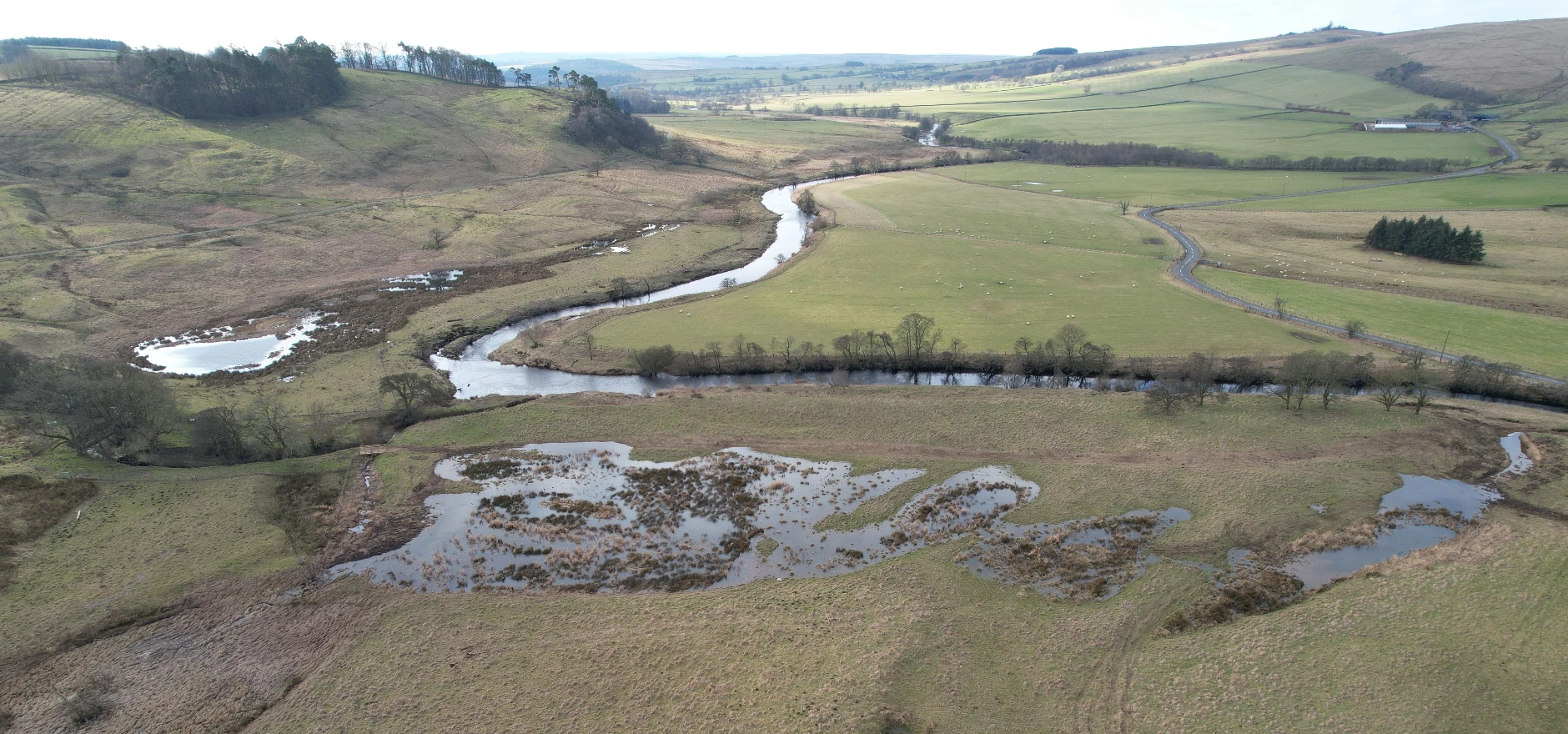
River Rede reconnected to historic floodplain
An environmental project has restored a section of river to its natural floodplain in a bid to protect some of the UK’s most threatened freshwater species.
Led by Tyne Rivers Trust, the conservation effort has reconnected 0.6km of the River Rede, in Northumberland, to its historic floodplain, creating new wetland habitats across ten hectares.
Funded by Natural England’s Species Recovery Programme, the scheme also included fish passage improvements, hedgerow planting and ditch blocking to support native species such as freshwater pearl mussels, salmon and trout, while boosting biodiversity for birds, amphibians and invertebrates.
Yve Martin, project manager at the Tyne Rivers Trust, said: “Floodplain reconnection on the North Tyne and Rede is essential for the future of our freshwater species including salmon, trout and the critically endangered freshwater pearl mussel.
“In high flow events the two chutes will carry water and suspended sediment onto the floodplain.
“Removing excess sediment and nutrients from the river will ensure gravel beds remain high in oxygen, improving spawning habitat for salmon and trout.”
Ginny Swaile, deputy director for Natural England in Northumbria, added: “This impressive floodplain restoration scheme on the River Rede represents a crucial step in protecting our precious freshwater ecosystems.
“By reconnecting the river to its historic floodplain, we are not only creating valuable wetland habitats but also directly supporting the recovery of endangered species including the freshwater pearl mussel.
“Natural England is proud to support this collaborative effort through our Species Recovery Programme, demonstrating how targeted conservation work can deliver significant benefits for both wildlife and local communities in Northumbria.”
Looking to promote your product/service to SME businesses in your region? Find out how Bdaily can help →
Enjoy the read? Get Bdaily delivered.
Sign up to receive our daily bulletin, sent to your inbox, for free.








 How to make your growth strategy deliver in 2026
How to make your growth strategy deliver in 2026
 Powering a new wave of regional screen indies
Powering a new wave of regional screen indies
 A new year and a new outlook for property scene
A new year and a new outlook for property scene
 Zero per cent - but maximum brand exposure
Zero per cent - but maximum brand exposure
 We don’t talk about money stress enough
We don’t talk about money stress enough
 A year of resilience, growth and collaboration
A year of resilience, growth and collaboration
 Apprenticeships: Lower standards risk safety
Apprenticeships: Lower standards risk safety
 Keeping it reel: Creating video in an authenticity era
Keeping it reel: Creating video in an authenticity era
 Budget: Creating a more vibrant market economy
Budget: Creating a more vibrant market economy
 Celebrating excellence and community support
Celebrating excellence and community support
 The value of nurturing homegrown innovation
The value of nurturing homegrown innovation
 A dynamic, fair and innovative economy
A dynamic, fair and innovative economy